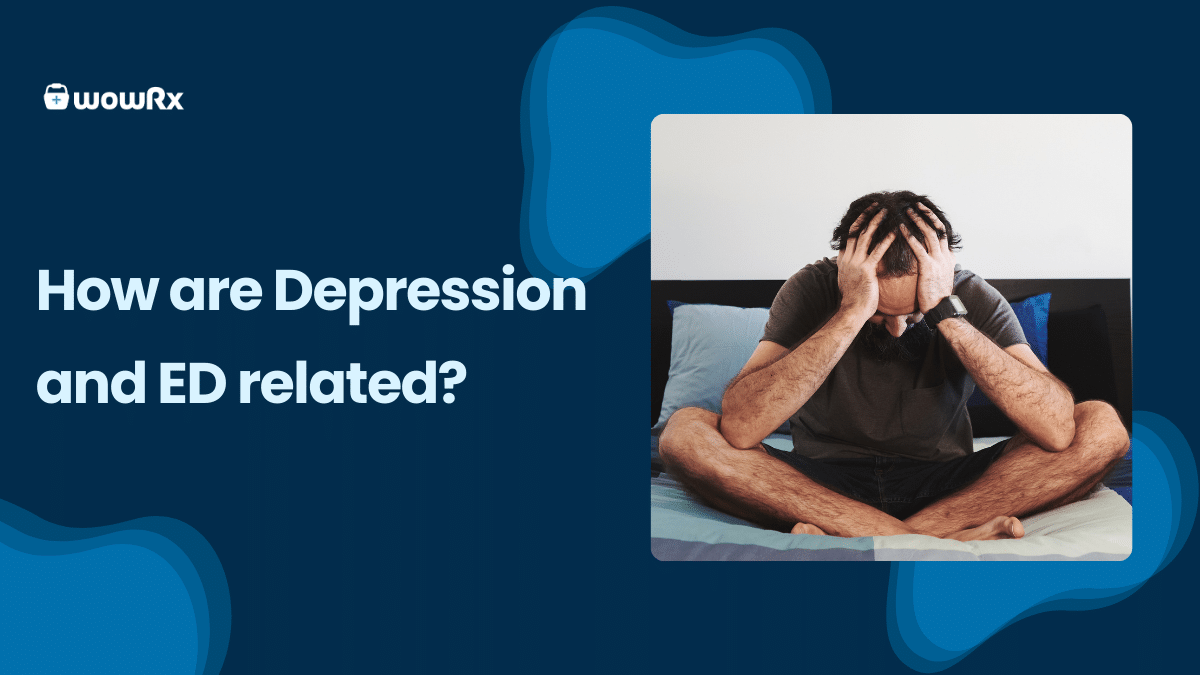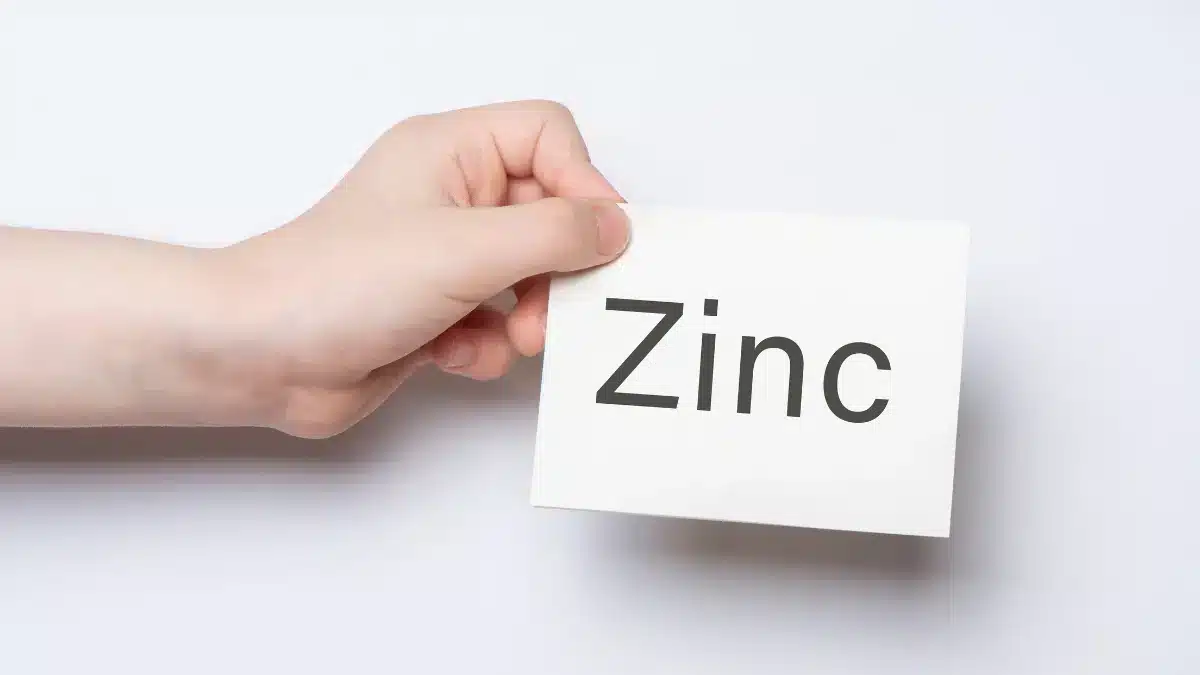How are Depression and Erectile Dysfunction Linked
Feeling down and struggling in the bedroom? It’s stunning yet true that Depression and Erectile Dysfunction (ED) often go hand-in-hand, more closely linked than many realize. It’s natural to wonder, ‘Can Depression cause Erectile Dysfunction?’ The answer is yes. Men with Depression are nearly twice as likely to experience ED.
If you’re dealing with both, it can feel overwhelming. But understanding the connection is the first step to finding relief. In this article, we’ll explore how these two conditions are connected and what you can do about it. Whether you’re facing these issues for the first time or seeking deeper understanding, we invite you to read on.
Can Depression cause Erectile Dysfunction?
It’s essential to contemplate the complex relationship between the mind and body. There is a well-established link between ED and Depression, with evidence suggesting that eithercondition can influence the other.
How Depression causes ED
Depression, characterized by persistent sadness, lack of interest in enjoyable activities, and a pervasive sense of hopelessness, can indeed play a critical role in the development or worsening of Erectile Dysfunction.
The underlying causes of how Depression may lead to ED are not fully understood, but current theories suggest it could be due to:
- Behavioral factors: Depression involves negative thoughts and low mood, which can lead to performance anxiety that hinders erectile function
- Biological factors: Depression is associated with imbalances in neurotransmitters that are crucial for sexual arousal and function. These imbalances can lower libido and make it hard to get an erection by cutting off blood flow to the penis
- Antidepressant medications: Many antidepressants, particularly Selective Serotonin Reuptake Inhibitors (SSRIs), can cause low libido and inhibit the ability to get or maintain an erection
- Low Testosterone levels: Depression is associated with low levels of the male hormone Testosterone, which plays a key role in sexual performance
How ED Can Cause Depression
Men with ED are about 192% more likely to develop Depression, suggesting the link between the two conditions likely goes both ways.
- Emotional impact: The inability to perform sexually can lead to feelings of inadequacy, frustration, and low self-worth, which may contribute to the development of depressive symptoms
- Cycle of dysfunction: The relationship between ED and Depression is often cyclical. Men with ED may develop Depression, which can further worsen their erectile issues, creating a challenging feedback loop
Signs and symptoms
Knowing the symptoms of both conditions can give you the confidence to get help and make your life better. Here are some signs and symptoms to look out for:
Erectile Dysfunction symptoms
Erectile Dysfunction is more than just an occasional problem; it’s a persistent issue that can significantly impact your life.
Symptoms of Erectile Dysfunction include:
- Inconsistent ability to achieve an erection
- Complete inability to achieve an erection
- Difficulty maintaining an erection during sexual activity
- Erections that are not firm enough
- Reduced sexual desire
The first step in getting treatment and figuring out the underlying causes, which frequently go beyond physical health, is acknowledging these symptoms. If you experience any of these symptoms regularly, it’s important to speak with a healthcare professional.
Identifying Depression in the presence of ED
Understanding the symptoms of Depression is vital, especially when co-existing with Erectile Dysfunction. Common symptoms of Depression include:
- Persistent sadness or hopelessness
- Loss of interest in activities once enjoyed
- Fatigue and lack of energy
- Difficulty concentrating
- Changes in appetite or weight
- Unexplained physical problems, such as back pain or headaches
- Sleep disturbances
- Feelings of worthlessness or excessive guilt
If you identify any of these symptoms, it might be time to consider that Depression is impacting your life and possibly your sexual health.
Treatment options
Addressing both Depression and Erectile Dysfunction involves a comprehensive strategy that focuses on improving both mental and physical health. It requires a multifaceted treatment approach. Here are some effective options:
Medications for Erectile Dysfunction
The advent of medications like Sildenafil has opened doors for many to reclaim their sexual health. These medications work by increasing blood flow to the penis, thereby facilitating erection in response to sexual stimulation.
Common options include:
- Sildenafil (Viagra, Kamagra Oral Jelly)
- Tadalafil (Cialis, Tadacip)
- Vardenafil (Levitra, Valif)
- Avanafil (Stendra)
These medications are often effective, but it’s important to consult with your doctor to determine the best choice for you.

Medication change for Depression
Sometimes, the medication prescribed for Depression might contribute to ED. If you suspect this, it’s imperative to discuss it with your doctor. Under professional advice, modifications in medication can help with Erectile Dysfunction without jeopardizing mental health treatment.
If your current antidepressant is contributing to ED, your doctor might suggest switching to another medication. Some antidepressants like Bupropion and Mirtazapine have fewer sexual side effects. Never change or stop your medication without consulting your healthcare provider.
Lifestyle changes

Never underestimate the power of lifestyle adjustments because:
- Regular exercise boosts both physical and mental health
- A balanced diet supports overall well-being
- Quitting smoking and reducing alcohol intake can significantly improve erectile function
- Good sleep practices like adequate sleep are crucial for mental and physical health
- Techniques like mindfulness and meditation can reduce stress
Psychotherapy
Engaging in psychotherapy can offer dual benefits. It aids in coping with Depression and can also address psychological factors related to Erectile Dysfunction. Techniques like Cognitive-Behavioral Therapy (CBT) have shown promising results in treating both conditions.
Types of therapy that can help include:
- Cognitive-behavioral therapy (CBT): Focuses on changing negative thought patterns
- Sex therapy: Addresses sexual issues and improves intimacy
- Couples therapy: Helps partners communicate better and address relational issues
- Support groups: Speaking with people going through similar difficulties might inspire and offer understanding
When to contact a doctor
It’s crucial to contact a doctor if you experience:
- Persistent Erectile Dysfunction symptoms that affect your quality of life
- Depression symptoms that interfere with daily activities
- Concerns about medication side effects or interactions
Seeking help early can lead to more effective treatment and better outcomes.
Conclusion
The complex link between Depression and Erectile Dysfunction is undeniable. These conditions can mutually influence each other. Depression can lead to ED through behavioral and biological factors, antidepressant side effects, and low testosterone levels. Conversely, ED can trigger Depression, creating a cycle. It is a cycle that can be challenging yet manageable. It’s essential to identify the signs of each condition early for prompt action.
Recognizing the signs of both conditions empowers you to seek help, whether through lifestyle changes, therapy, or medication. Medicines containing Sildenafil like Kamagra Oral Jellycan be an important tool in managing Erectile Dysfunction when prescribed by a doctor. Addressing these issues is a journey toward improved mental and sexual health.
Frequently Asked Questions
Is Erectile Dysfunction a symptom of Depression?
Yes, Erectile Dysfunction (ED) is indeed a symptom of Depression. Studies indicate that men with Clinical Depression are approximately twice as likely to experience ED, highlighting the connection between mental wellness and sexual performance.
Can Depression cause erectile problems?
Yes, Depression can cause erectile problems. Depression alters brain chemicals that boost blood flow to the penis, causing problems achieving or keeping an erection. Treating the underlying Depression may help improve Erectile Dysfunction.
How do you fix mental Erectile Dysfunction?
To fix mental Erectile Dysfunction, consider therapy options like Cognitive Behavioral Therapy (CBT) to address Anxiety and self-esteem issues. Maintaining open lines of communication with spouses and making lifestyle adjustments, such as implementing stress management techniques, are also beneficial.
Can Depression stop morning wood?
Yes, Depression can indeed stop morning wood, as it affects hormonal levels and overall mental health. Stress and Anxiety associated with Depression may lead to reduced frequency of nocturnal erections (spontaneous erections that occur during sleep or upon waking), indicating potential underlying health issues.
Can a man live with Erectile Dysfunction?
Yes, a man can live with Erectile Dysfunction, but it may negatively impact his quality of life, mental health, and intimate relationships. ED is a treatable condition using effective medications like Kamagra Oral Jelly, thus, consulting a doctor is critical for controlling symptoms and underlying causes.
Can Anxiety and Depression cause Erectile Dysfunction?
Yes, Anxiety and Depression can cause Erectile Dysfunction. Both conditions affect mental well-being, leading to performance anxiety and negative thought patterns, which can hinder sexual function and contribute to the development and persistence of ED symptoms.
WowRx only refers to credible, authoritative sources for our content. If you’re curious about how we ensure the integrity of our content, we encourage you to read our Content Information Policy.


